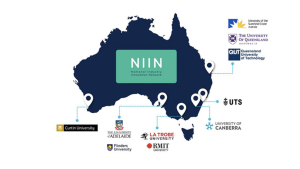In today’s rapidly evolving digital landscape, cybersecurity remains one of Australia’s most pressing innovation challenges. Almost half (49%) of Australian organisations have experienced at least one cyberattack in the past year, and 71% believe a cybersecurity incident is likely to disrupt their business within the next 12 to 24 months. Despite this, many companies remain underprepared, with only 34% feeling very confident in their cybersecurity infrastructure’s resilience against attacks.*
Now with AI, the stakes have change as machine scale is needed to fight machine scale. AI and machine learning algorithms can analyse vast amounts of data much faster than humans, identifying patterns and anomalies that indicate potential cyber threats before they cause damage. AI-powered cybersecurity tools can also help mitigate the shortage of skilled cybersecurity professionals, by automating complex tasks and making advanced security capabilities more accessible. This is especially important considering the cybersecurity skills shortfall of 30,000 unfilled positions expected over the next four years (according to CyberCX).
A new partnership with Cisco and The University of Queensland (UQ) exemplifies a fresh approach to tackling these challenges through deep collaboration between industry and academia. This three-year partnership aims to deliver advanced AI-driven solutions that detect and mitigate cyberattacks in real time, strengthening Australia’s sovereign cybersecurity capabilities.
Professor Marius Portmann has been appointed as UQ-Cisco Chair of Network Security based at the University. Professor Portmann will lead work to explore practical AI-driven solutions to enhance computer network security and defend against the threat of cyber-attacks.
“By leveraging advanced AI models, we can create tools that detect and mitigate cyber-attacks in real-time,” Professor Portmann said.
“This partnership is designed to make it simpler for industry and universities to innovate together, and to increase the adoption of state-of-the-art AI technology.”
It’s part of a needs-led innovation model in which industry and academia take a strategic look at how to bolster innovation, known as the National Industry Innovation Network (NIIN). The NIIN model is unique in its focus on aligning research with real-world industry challenges. Unlike traditional research partnerships, the NIIN brings together leading universities and industry players to accelerate the translation of innovation into practical solutions. It is a commitment to building sovereign capability and nurturing the next generation of tech talent. By exposing students to cutting-edge technologies through this collaboration, it is creating a pipeline of industry-ready graduates equipped to meet future digital security demands.
Broader lessons from this innovation model are clear, with 10 leading universities, attached to $550 million of project funding, over 350 projects completed, and 3,000+ students engaged in industry-led innovation. This network offers a new model of innovation that Australia urgently needs. For businesses, the partnership underscores the importance of treating the network as the first line of defence, leveraging AI for proactive threat detection, and preparing for emerging challenges such as post-quantum cryptography.
As we mark NIIN’s fifth year milestone, this collaboration highlights how industry-university partnerships can drive economic growth, enhance digital resilience, and secure Australia’s future in an AI-driven world.
*According to Cisco’s Cybersecurity Readiness Index
